IVF What to Expect at Consultation, Egg Transfer, and Pregnancy
What to expect from IVF? Assisted reproductive technologies can be an indispensable aid in solving the problem of infertility. However, their use will require patience and restraint from the future parents.

Any couple consulting a fertility expert wants to get immediate answers to a thousand questions. Here are some of the most frequently asked.
- What kind of therapy will be useful in our case?
- How long will the treatment last, how successful will it be?
- What will we do if the suggested methods do not solve our problem?
- How much will the whole complex of medical procedures cost?
- What happens after egg retrieval and transfer?
- What to expect from IVF pregnancy?
Unfortunately, often, the doctors can`t give straight answers during the first visit to the clinic. However, we will try to provide you with overall information about each of the steps, you will learn what questions to ask and what to expect from IVF starting from the first consultation till your successful pregnancy. Let`s start with your first talk to a fertility expert!
1. What to Expect at IVF Consultation
Usually, the initial visit to a reproductive doctor follows years of regular visits to the gynecologist and or urologist in an attempt to solve the existing problem with more straightforward and less expensive methods.

Well, this can work when a woman is less than 33-35 y.o. In this case, couples have much time for waiting and tries. However, for women older than 35, each month of delay significantly reduces the pregnancy chances even with the help of assistive technologies. That’s why, if pregnancy does not occur within six months of attempt, you should immediately consult the reproductologist.
If this is your first visit, we would recommend you to make it with your partner. Regardless of the problem, medical procedures are carried out for both partners, even if only one person of the couple is infertile due to the male or female factors. Besides, a visit to the fertility specialist is an essential step for future parents. Therefore, it would be better if the partners take this step together.
What Will the IVF Experts Ask?

What to expect at IVF consultation? Usually, at the first consultation, the reproductive specialist asks questions about:
- diseases that partners have or had before;
- previous pregnancies and kids;
- miscarriages and abortions;
- results of prior gynecological and urological examinations;
Be ready to answer very intimate questions about your sex life, the relationship between partners, the confidence of both partners in the desire to have children. Some of these questions may seem awkward, inconvenient, unrelated to the existing problem. However, att that is really necessary to make a correct diagnosis and suggest the most effective treatment.
What Answers Can You Get at IVF Consultation?
The task of the specialist at the first consultation is also to answer your questions as detailed as possible. You should not expect that after the first conversation, you will clearly know why you have the problems with fertility and what factors influenced it.

It is very likely that the tests you have already done will not be enough to make a diagnosis. To give a more detailed answer, the doctors can:
- prescribe additional tests,
- conduct an ultrasound examination,
- ask your partner to come back for a second consultation on a specific day of the cycle for further procedures.
If the infertility is not yet diagnosed, they may require some time and additional visits before the treatment starts. However, if infertility and its causes are fully grounded, then you can expect to get a precise treatment plan in your hands. Only in this case, the doctor can schedule the procedures and tell you how much the treatment and medications will cost. Please mind, that the experts may also modify the treatment due to the specific reactions and changes that occur in your body.
Medical results of the first IVF consultation are preliminary. But in any case, you should trust the doctor and your partner, and your first attempt will have more success chances. If you are ready to start or would like to get a free online consultation – you can contact us and Sunshine fertility experts will gladly answer all your questions via phone call, chat or email.
2. What Happens after Egg Retrieval in IVF
Let`s say that you have successfully passed all the necessary testing and proceed with the egg retrieval. This procedure is the second stage of the IVF cycle. It is carried out after hormonal stimulation of the ovaries. In particular, it takes 35-36 hours to obtain mature eggs at the final stage of ovulation. The eggs can be taken from the future mother or from an egg donor.
For safety reasons, a woman should be at the clinic at least 30 minutes before the process to undergo a cardiogram and talk with the anesthesiologist about possible allergies. She also has to inform the doctor about any medications she takes and the health problems she has. Last but not least, a woman should not eat or drink anything 12 hours before the procedure.
During the IVF egg retrieval, a doctor uses transvaginal ultrasound and makes a puncture of the follicle with a special needle. The liquid containing eggs is absorbed into special test tubes, which are then transferred to the embryology laboratory. Oocytes are purified from follicular fluid and blood in a petri dish. After that, egg fertilization with the sperm of the partner or donor takes place.
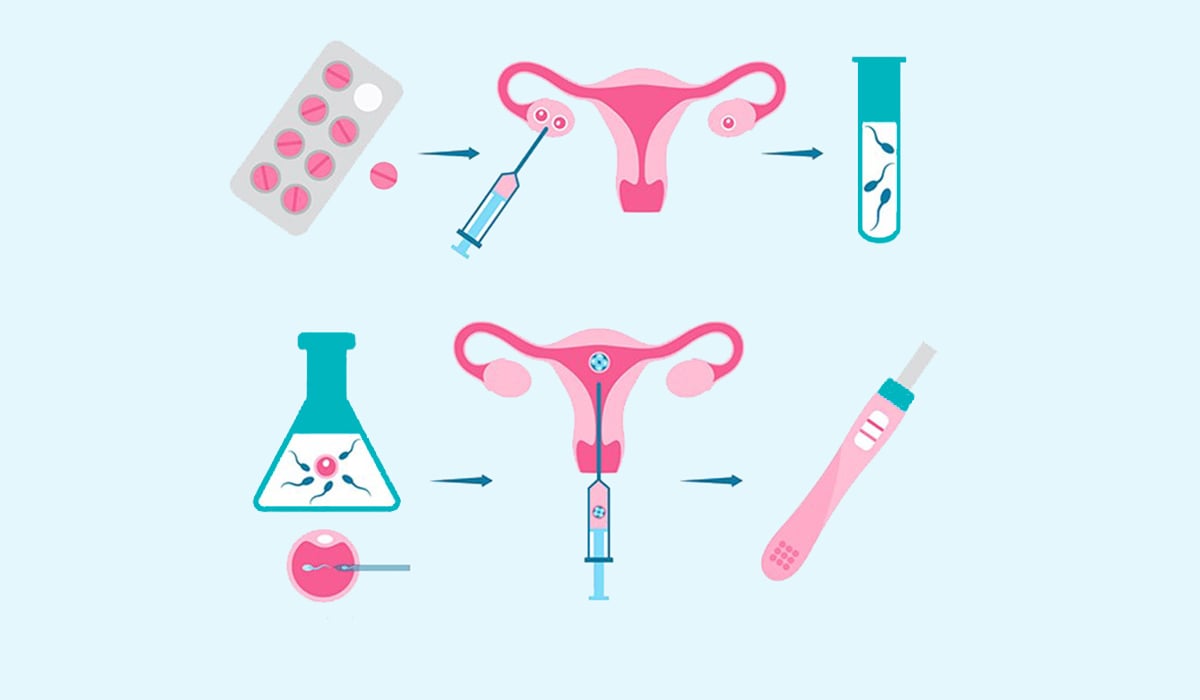
Egg collection takes about 20 to 30 minutes, depending on the number of follicles in the ovaries. No cuts are made, and no scars remain on the body because the surgeon accesses ovaries through the vagina. After egg retrieval in IVF, the patient needs light intravenous sedation and rest. A recovery period after the procedure takes approximately one hour.
Sperm Collection and Preparation
On the same day of the oocyte collection, doctors ask the man to provide fresh or frozen sperm. Before taking the sample, it is necessary to abstain from sexual activity for 3-4 days. After collection, the semen is delivered to the laboratory, where it undergoes washing and selection. Doctors take the most motile spermatozoa and stimulate them to increase fertilization chances.
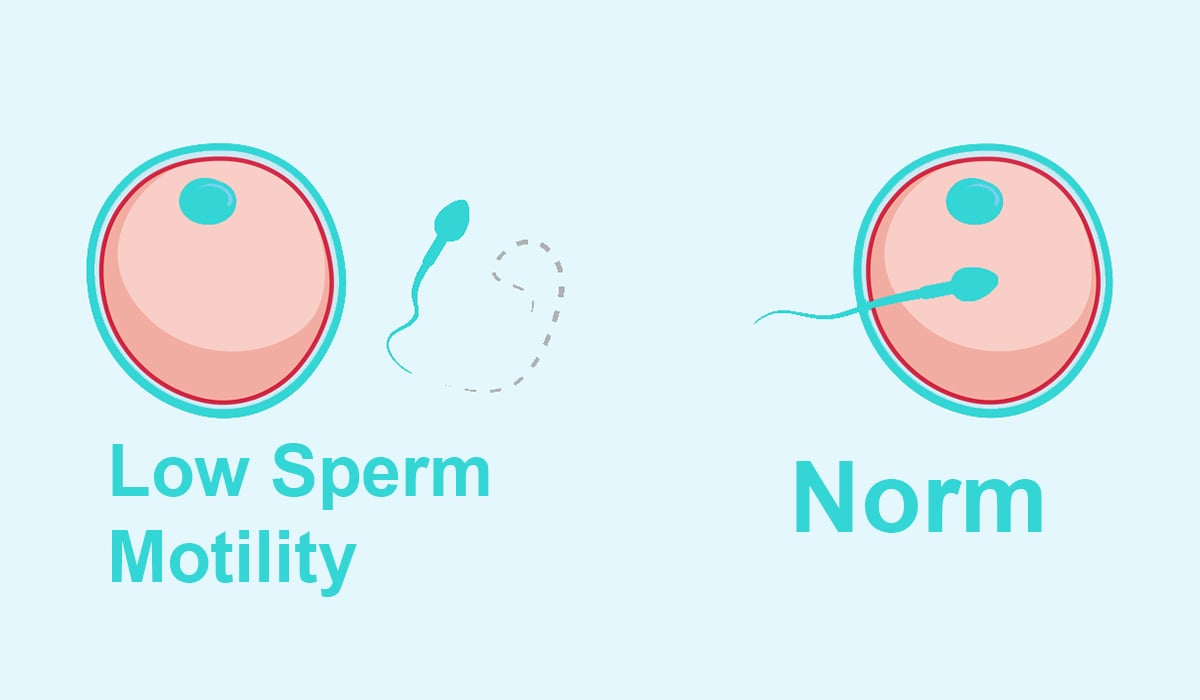
Men can bring a sperm sample taken at home or in the clinic using masturbation. For men with azoospermia, spermatozoa are collected directly from the testicles.
Fertilization and Egg Transfer
A few hours after egg retrieval and sperm collection, the fertilization takes place. During traditional IVF, mature eggs are placed in a nutrient medium containing the spermatozoa. One of them penetrates and fertilizes the egg.
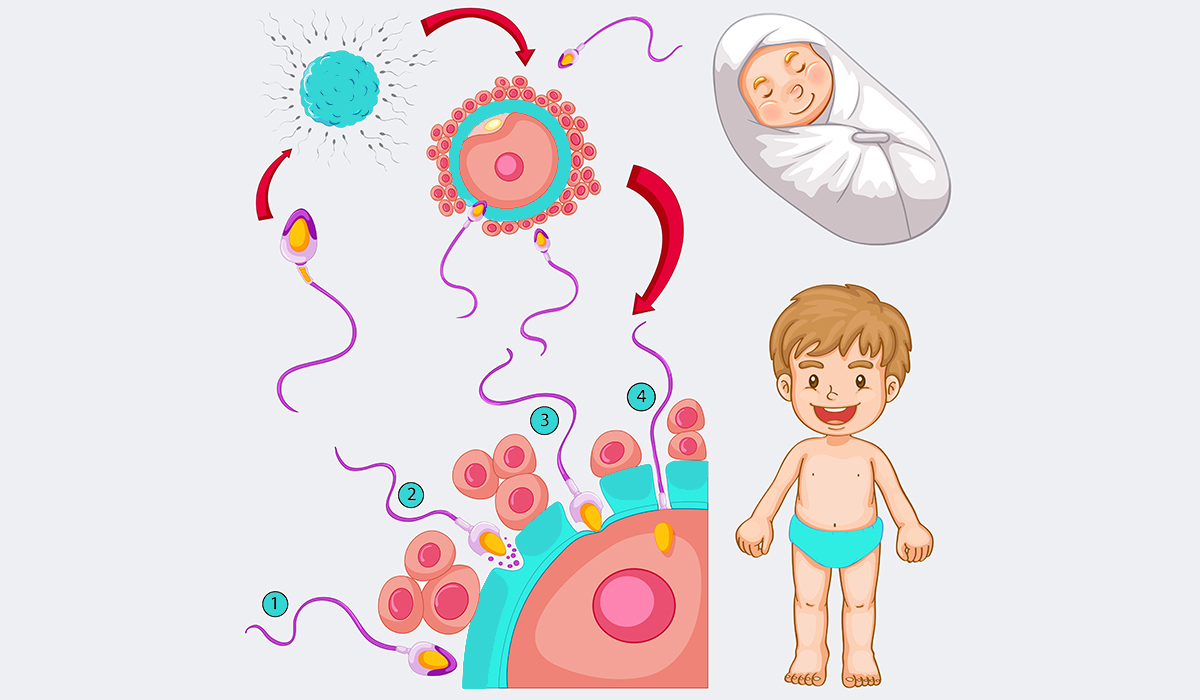
In cases of severe male infertility, other laboratory methods are used. For example, fertilization can be performed using intracytoplasmic sperm injection (ICSI) – a technique in which the sperm is injected directly into the egg cell. Oocytes are then incubated in the laboratory.
The next morning, 16-18 hours from the moment of fertilization, the embryologist performs an inspection. The first sign of fertilization is two pronuclei (small round structures) in the oocyte.
Chances of successful fertilization are 50% – 100%. Factors affecting these parameters are the quality and maturity of oocytes and sperm, as well as the quality of the cell processing and cultivation procedure.
3. What Happens After Transfer
Embryo transfer usually occurs 2-3 days after the oocytes collection. The procedure is straightforward and usually takes a few minutes and doesn’t require anesthesia.
A doctor prepares the woman using dilator and cleans the cervix. Then embryologist loads the embryos into a special catheter and transfers it inside the uterus, where it releases the embryos. The process is carried out under ultrasound control. Upon completion, the embryologist examines the catheter to verify that all embryos are in the uterine cavity.
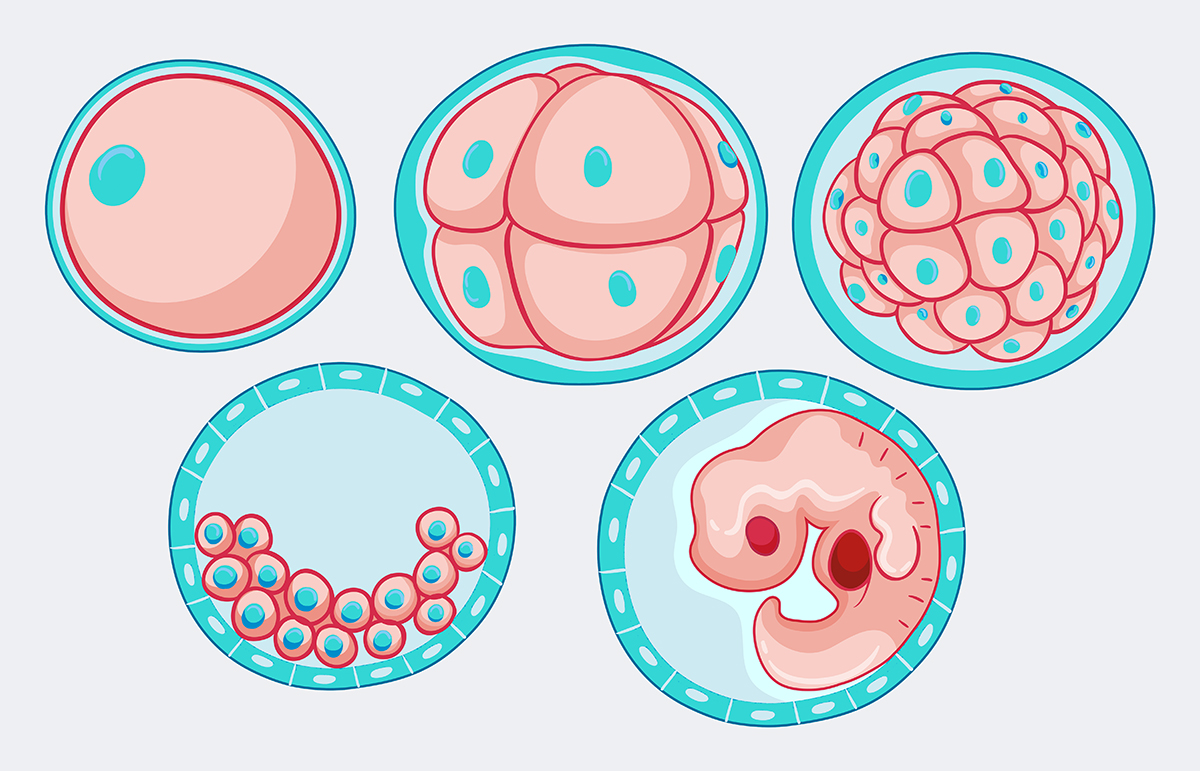
The number of embryos varies. Usually, two to four embryos are transferred. The number depends on their quality, the patient’s age, the number of prior IVF cycles, and the likelihood of multiples.
After the transfer, the patient should have a 30-minutes rest and 2-3 days of observation in the clinic.
4. IVF Pregnancy – What to Expect?
On the twelfth day after embryo transfer, a woman should make a blood test to find out if the embryo transfer was successful. If the blood contains the beta-HCG hormone, doctors can congratulate the women.
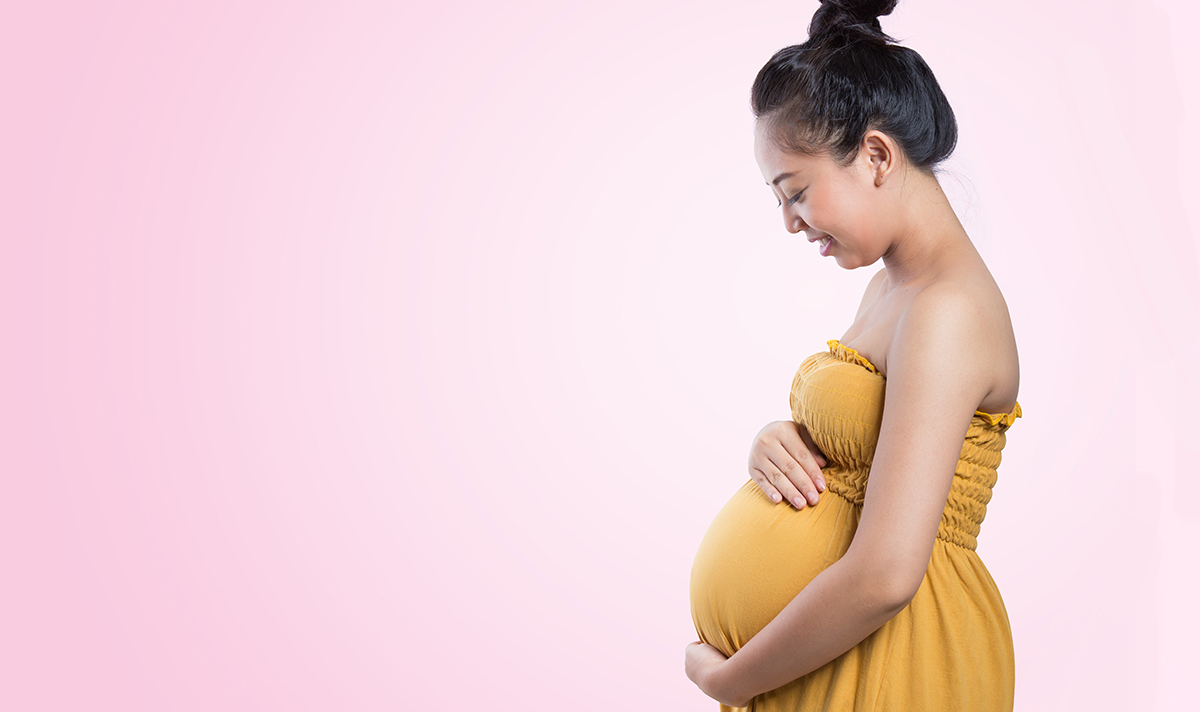
It is not recommended to use any other pregnancy tests after IVF. E.g., urine texting has a high probability of false negative results. Blood test detects human beta-chorionic synthetic follicle stimulating hormone, which is produced by the embryo. Usually, the level of HCG doubles every 2–3 days during the first stages of pregnancy.
The first ultrasound scan is performed 2 weeks later to confirm the presence of a gestational and yolk sac.
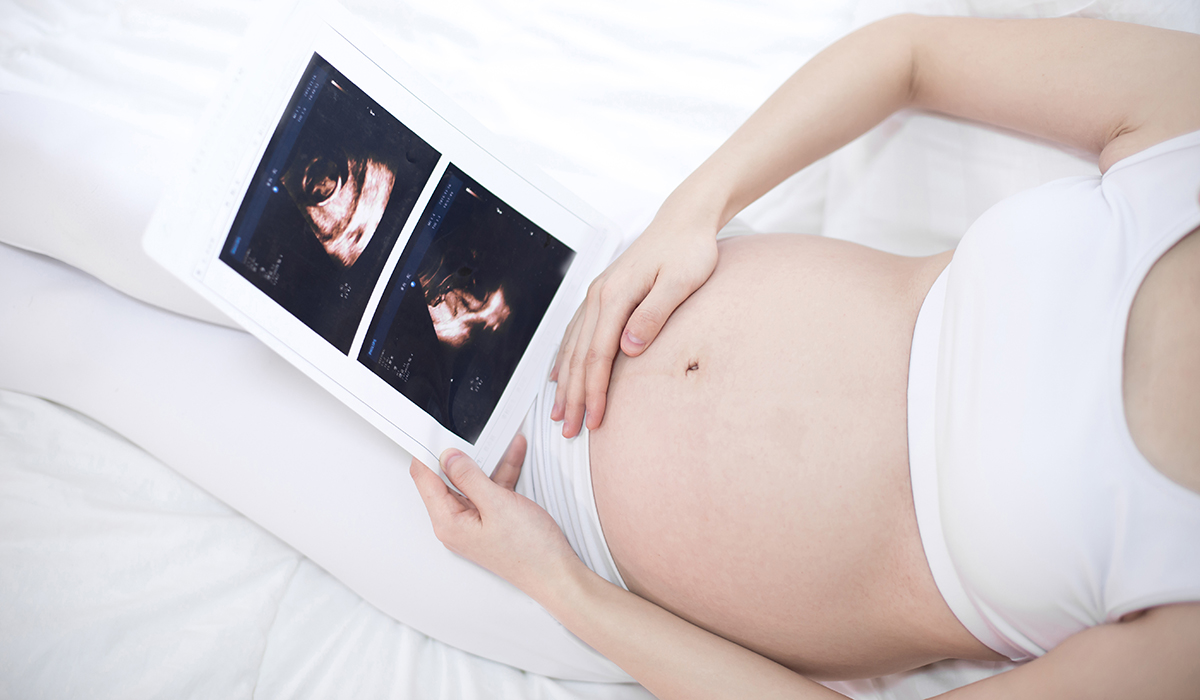
Please mind that careful monitoring and observation are essential throughout pregnancy. That`s why we recommend you to consult your fertility doctors and inform them about any changes in your health and wellbeing.
What is the Difference between IVF and Natural Pregnancy?
The only difference is the way of getting pregnant. All other peculiarities and complications of pregnancy and childbirth are the same. They can relate to the individual characteristics of the woman’s body and health.
What to Expect from IVF – Final Words
We hope that this article helped you to shed light on the procedures and find out what to expect from IVF. If you want to know more details or get advice concerning IVF, egg donors, and fertility – we are always ready to give you a hand!
